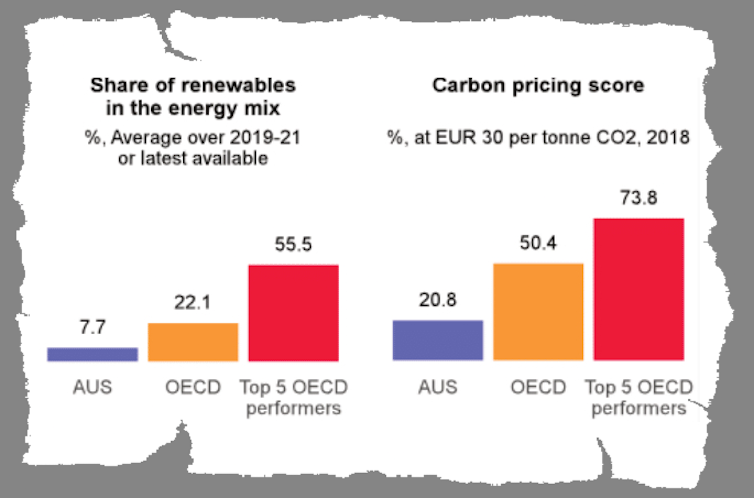Australia's emissions must decline more steeply to reach climate commitment: OECD
- Written by Michelle Grattan, Professorial Fellow, University of Canberra

Australia’s emissions need to decline “on a much steeper trajectory” if it is to meet its declared commitment of a 43% reduction by 2030 and net zero by 2050, the Organisation of Economic Co-operation and Development says.
In its report on Australia, released as part of its Going For Growth[1] update on Tuesday, the OECD recommends Australia develop
a national, integrated long-term emissions reduction strategy with clear goals and corresponding policy settings to achieve climate targets.
The OECD also suggests broadening the scope of Australia’s so-called Safeguard Mechanism[2], which at present regulates the emissions of Australia’s 215 biggest polluting facilities.
It awards Australia a score on carbon pricing well below the OECD average and even further below that of the top OECD performers.
It says the share of renewables in Australia’s energy supply averaged only 7.7% between 2019 and 2021, compared to an average of 22.1% for OECD members, and 55.5% for the top performers.

















